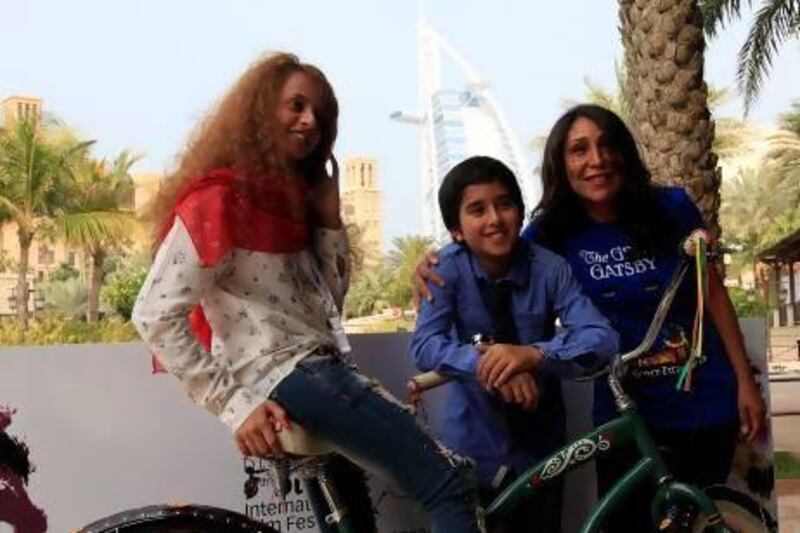Making a feature film about attitudes towards women in Saudi Arabia might seem a recipe for inevitable controversy and rancour – but not if the project is in the hands of Haifaa Al Mansour.
"I want to make films that make Saudis proud," she said. "I try always to work within my boundaries as a Saudi woman. I belong to a very conservative place, so I write and direct within those limits." Her film Wadjda, one of the undoubted highlights of this year's DIFF, tells the story of a young girl who yearns to own a bicycle so she can race her friend Abdullah. Girls in Saudi Arabia are discouraged from riding bikes.
“I wanted to make a movie about my culture, about where I come from, and I really didn’t have a story,” added Al Mansour, the kingdom’s first woman filmmaker. “I had only a bike and a girl, and it took a while to make the story.
“The first draft was really bleak, it was really passive, really dark. It was like, ‘I’m coming from Saudi Arabia, women are really suffering’, and stuff like that. But then I grew up with the story.”
The result is charming, moving, affecting and shot through with moments of humour. It is the first full-length feature to be shot entirely in Saudi Arabia, where cinemas are banned.
The film stars two Saudi youngsters. Wadjda, the girl, is played by Waad Mohammed, 11, and Abdullrahman Al Gohani, 10, plays Abdullah.
Abdullrahman’s schoolfriends back in the kingdom had a shock when they turned on the TV news this week and saw him strolling down the red carpet in Dubai.
“Some of them didn’t really believe I was in a film,” he said. “When I was coming out of school the day before my brother asked me: ‘Did you tell them you were going to the red carpet?’ I said no, and he said, ‘It’s cool, let them see it on the TV’.”
-To view the interview with Haifaa Al Mansour, go to https://www.thenationalnews.com/multimedia
- Lamine Ammar Khodja set out to make one kind of film – but ended up with something very different.
He returned home to Algeria after studying abroad for eight years shortly before the Arab Spring upheaval began. He felt that what was happening on the streets was being misrepresented by the media and was far less politically motivated than was being portrayed. So he set out to film his own record, which became the Muhr Arab documentary award contender Demande A Ton Ombre (Ask Your Shadow).
“I had the idea to make a diary of the events,” he said. “But when I began the editing I understood that I was not making a film about that, I was making a film about a person who’s come back to the homeland and can’t find his place.”





